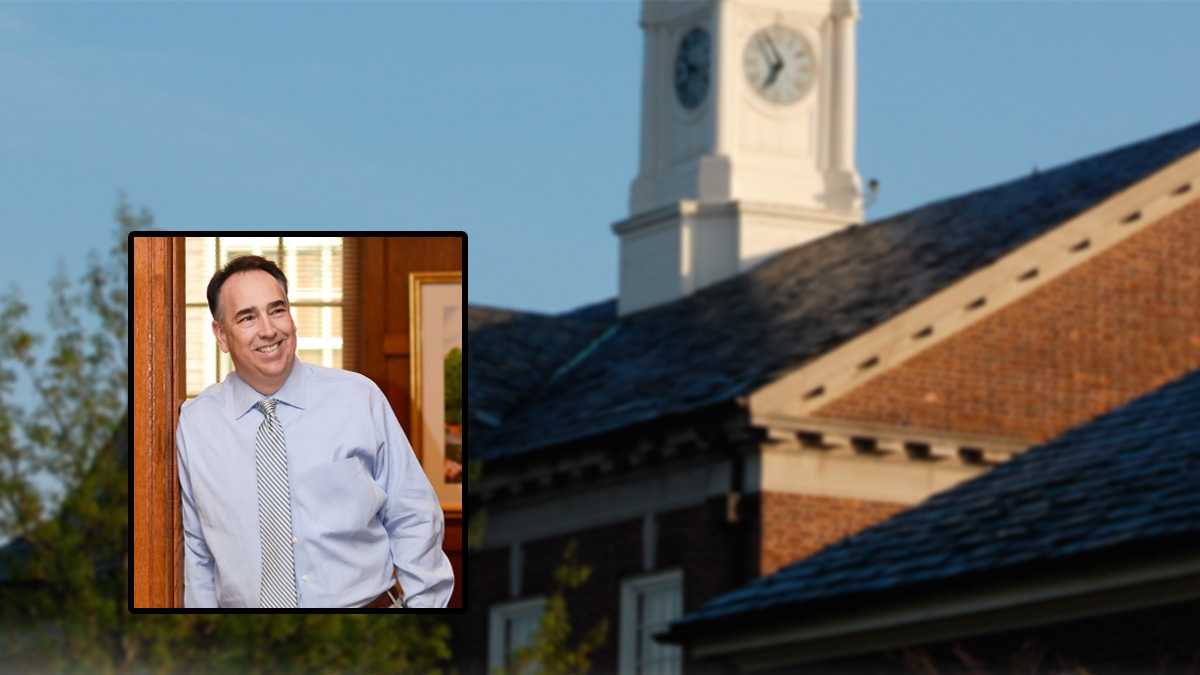Delaware court considers child porn appeal from ex-school headmaster

Delaware’s Supreme Court justices appear to have serious concerns about the validity of a search warrant that led to the arrest and conviction of a former prep school headmaster on child pornography charges.
The justices at times left a state attorney fumbling for words as he tried to defend the warrant at a hearing Wednesday in an appeal by Christopher Wheeler.
Wheeler was convicted last year on 25 counts of dealing child porn and sentenced to 50 years in prison. He waived his right to a jury trial after a judge denied a defense motion to suppress evidence seized by authorities.
Wheeler is former headmaster at Tower Hill School in Wilmington, whose graduates include former DuPont Co. CEO Ellen Kullman, U.S. Sen. Chris Coons and television personality Dr. Oz.
Wheeler’s attorney, Thomas Foley, argues that authorities improperly used possible witness tampering as an excuse to obtain search warrants that contained virtually no restrictions and allowed them to search Wheeler’s computers, cellphones and other digital devices for child pornography.
Foley said Wednesday that the warrant used by police was a “cut and paste job” from the type typically used in child pornography investigations.
“The crime here was witness tampering,” he noted.
Chief Justice Leo Strine Jr. also expressed skepticism about the search warrant, pointedly asking Deputy Attorney General Andrew Vella if it was not simply “a way to get in the door” and then rummage through Wheeler’s “entire digital world.” He asked Vella repeatedly, without getting an answer, why authorities would be interested in a camera if they were looking for evidence of written communications that might suggest witness tampering.
“It’s just a dump of a child porn search warrant, right?” Strine asked.
Wheeler was arrested in October 2013 after police, prompted by allegations of child sexual abuse for which he was never charged, searched his home and office.
Authorities purportedly were looking for evidence of Wheeler’s communications with Pennsylvania brothers who, in the wake of the Jerry Sandusky scandal at Penn State University, contacted Wheeler about their alleged molestation several decades ago.
In reply to a letter from one of the brothers, Wheeler apologized for the pain he had caused, saying “I did those things.”
“I’ll wait to hear from you about further appropriate steps towards resolution and restitution,” Wheeler added.
Foley said nothing in Wheeler’s correspondence or meetings with the brothers suggested, and no allegation was ever made, that he had tried to intimidate them or prevent them from reporting the alleged abuse to authorities.
“You’re able to apologize. It’s not a crime,” said Foley, who also noted that Delaware authorities already had interviewed the brothers and seen their correspondence with Wheeler before executing the search warrants.
Foley and the American Civil Liberties Union, which filed its own brief in the case, also noted that the computer containing images for which Wheeler was convicted had last been turned on 10 months before the Pennsylvania brothers began communicating with him in July 2013.
“This case involves the absence of any justification whatsoever for a search that included image files from 2012 in an investigation into written correspondence from 2013,” wrote Richard Morse, an attorney for the ACLU of Delaware.
Vella argued that police had probable cause to suspect witness tampering because of a “pattern” by Wheeler of abusing young boys, including, allegedly, his own adopted son, then paying them off.
Strine immediately cut Vella off, noting that 25 years had passed with no contact between Wheeler and the Pennsylvania brothers since their alleged abuse, and that they, not he, initiated contact after the Sandusky scandal.
Pressed by Strine, Vella also could not say whether Wheeler could even have been prosecuted for child sex abuse in Pennsylvania, given the passage of time, even though the purported basis of the search warrant was that he may have tried to intimidate or tamper with witnesses in order to avoid prosecution.
In addition to challenging the search warrant, Foley said prosecutors never proved that Wheeler ever downloaded or looked at any images of child pornography.
Under questioning from Justice Randy Holland, Vella suggested that Wheeler’s crime was not in subscribing to certain newsgroups — many with titles suggestive of their content — but in having the “ability” to view the images that were being cached.
“You have the potential, therefore you’ve committed a crime?” Holland responded.
WHYY is your source for fact-based, in-depth journalism and information. As a nonprofit organization, we rely on financial support from readers like you. Please give today.

